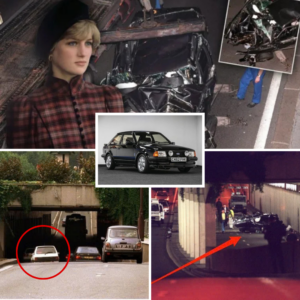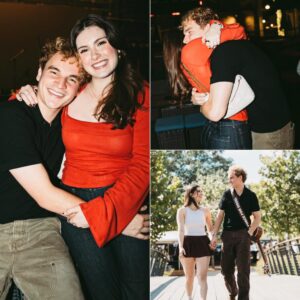On July 25, 2025, Marvel Studios unleashed The Fantastic Four: First Steps, a bold reboot of Marvel’s First Family, into theaters worldwide, and the response has been nothing short of phenomenal. Directed by Matt Shakman, known for his work on WandaVision, the film has captivated audiences and critics alike with its vibrant retro-futuristic aesthetic, stellar cast chemistry, and heartfelt focus on family dynamics. Set in an alternate 1960s-inspired universe dubbed Earth-828, the movie sidesteps the Marvel Cinematic Universe’s (MCU) convoluted multiverse narrative, offering a standalone adventure that feels both fresh and nostalgic. Starring Pedro Pascal as Reed Richards/Mister Fantastic, Vanessa Kirby as Sue Storm/Invisible Woman, Joseph Quinn as Johnny Storm/Human Torch, and Ebon Moss-Bachrach as Ben Grimm/The Thing, the film has been hailed as a triumphant return to form for Marvel, earning praise for its visual splendor, emotional depth, and faithful adaptation of Stan Lee and Jack Kirby’s iconic comic creation. With a global box office haul of $368.7 million as of August 3, 2025, and an 86% approval rating on Rotten Tomatoes, The Fantastic Four: First Steps is not just a hit—it’s a beacon of hope for a franchise seeking to rediscover its magic.
A New Dawn for Marvel’s First Family
The Fantastic Four, created by Stan Lee and Jack Kirby in 1961, are Marvel’s foundational heroes, a team defined not just by their superpowers but by their familial bond. Previous cinematic attempts—Roger Corman’s unreleased 1994 film, the 2005 and 2007 films starring Ioan Gruffudd and Jessica Alba, and the 2015 Fant4stic reboot—failed to capture the essence of the comics, often criticized for lackluster storytelling or misguided tone. First Steps breaks this cycle, diving into the team’s story four years after their cosmic ray exposure, bypassing the oft-told origin tale. This narrative choice, championed by producer Kevin Feige, allows the film to focus on the Fantastic Four as established heroes, navigating both cosmic threats and personal milestones.
Set in a retro-futuristic 1960s New York, the film opens with Reed and Sue, now married, preparing for the birth of their first child. The Baxter Building, their sleek headquarters, is a marvel of mid-century modern design, complete with a robotic assistant named H.E.R.B.I.E. and a flying Fantasticar. The story kicks off with a celebratory talk-show appearance, hosted by a chipper Mark Gatiss, marking the team’s fourth anniversary as Earth’s protectors. But the arrival of the Silver Surfer (Julia Garner), herald of the planet-devouring Galactus (Ralph Ineson), upends their domestic bliss, forcing the team to confront a threat that could consume Earth-828—and gets deeply personal when Galactus sets his sights on their unborn child.
Stellar Cast and Chemistry
The heart of First Steps lies in its cast, whose chemistry has been universally praised. Pedro Pascal’s Reed Richards is a brilliant yet socially awkward scientist, balancing stoic intellect with a warmth that makes him a compelling patriarch. Critics note that Pascal, fresh off roles in The Mandalorian and The Last of Us, brings a nuanced depth to Reed, making him relatable despite his elastic powers. Vanessa Kirby, as Sue Storm, emerges as the film’s emotional anchor, her force-field abilities and maternal strength stealing scenes. “Kirby’s Sue is proactive, pragmatic, and crucial—a superhero who doesn’t disappear,” wrote one reviewer, praising her stand against Galactus as a highlight.
Joseph Quinn, riding high from Stranger Things and Gladiator II, infuses Johnny Storm with youthful bravado and surprising intelligence, portraying the Human Torch as more than just a hotheaded prankster. Ebon Moss-Bachrach, known for The Bear, delivers a standout performance as Ben Grimm, whose rocky exterior hides a tender heart. His romance with schoolteacher Rachel Rozman (Natasha Lyonne) evokes classic working-class dramas, adding emotional weight. “Moss-Bachrach’s Ben lumbers away with the movie,” a critic raved, noting his ability to convey both strength and vulnerability.
The ensemble’s dynamic feels authentic, with banter and squabbles that mirror a real family. Scenes in the Baxter Building, from family dinners to Reed’s lab experiments, are filled with warmth and humor, grounding the cosmic stakes. The inclusion of supporting characters like Paul Walter Hauser’s Mole Man and Sarah Niles as the team’s chief of staff adds texture, though some critics wished for more screen time for these roles.
A Visual and Sonic Triumph
Visually, First Steps is a feast, blending 1960s retro aesthetics with futuristic flair. Production designer Kasra Farahani crafts a vibrant Earth-828, where flying cars and rounded red cabinets evoke The Jetsons, while the Baxter Building’s sleek design nods to Mad Men. The costumes—identical blue uniforms with white boots—pay homage to the comics’ 1960s origins, earning praise for their mod charm. “Sue’s wardrobe deserves its own fashion spread,” one reviewer quipped. Galactus’s cosmic realm, filled with incomprehensible technology, is a love letter to Jack Kirby’s bold artwork, with practical effects and CGI creating a stunning spectacle, especially in IMAX.
Michael Giacchino’s score is another high point, described as “triumphant” and “instantly iconic.” With a choral sting of “Fantastic Fourrrrr!” the music elevates key moments, like the team’s rocket launch to confront Galactus, blending heroism with emotional resonance. “Giacchino’s score hits like a meteor,” wrote one critic, calling it his finest MCU work, surpassing even his Avengers themes. The combination of visuals and sound creates a cohesive, immersive experience that sets First Steps apart from recent MCU entries.
A Family-Centric Narrative
The film’s focus on family has resonated deeply, particularly with parents. The story opens with Sue’s pregnancy announcement, setting the stage for a narrative that intertwines superheroics with the anxieties of impending parenthood. “To have a child is to know the fear of unimaginable loss,” Reed says, a line that encapsulates the film’s emotional core. The threat posed by Galactus, who demands the Fantastic Four’s unborn child for reasons tied to his cosmic hunger, elevates the stakes to a personal level. Critics praise this approach, noting that it grounds the fantastical elements in human experiences, making the team relatable.
The film’s exploration of duality—traditional family values versus advanced science, heroism versus vulnerability—adds depth. Sue’s pregnancy doesn’t diminish her strength; instead, it amplifies her role as a protector, challenging stereotypes. “Being pregnant doesn’t mean you can’t fight,” one review noted, highlighting how the film defies expectations. Ben and Johnny’s side stories, including Ben’s romance and Johnny’s growth from impulsiveness to responsibility, weave seamlessly into the main plot, ensuring each character shines.
However, some critics argue the story is overly simplistic, prioritizing character introduction over a complex narrative. “The plot is competent but doesn’t leave a lasting impression,” one review stated, pointing to a lack of tension due to the predictable resolution. Galactus, while visually imposing, is criticized for lacking depth, with limited screen time for both him and the Silver Surfer. Despite these critiques, the film’s brisk 1-hour-55-minute runtime keeps the pace lively, avoiding the bloat of recent MCU films.
Critical and Audience Reception
The Fantastic Four: First Steps has earned an 86% approval rating on Rotten Tomatoes, based on 360 reviews, with a Metacritic score of 65/100, indicating “generally favorable” reception. The Rotten Tomatoes consensus reads, “Benefitting from rock-solid cast chemistry and clad in appealingly retro 1960s design, this crack at The Fantastic Four does Marvel’s First Family justice.” Audiences polled by CinemaScore gave it an A−, reflecting strong approval. Social media buzz, particularly on X, has been electric, with fans calling it “Marvel’s best in years” and praising its standalone nature. “No multiverse nonsense, just a fun family adventure,” one user posted.
Critics have lauded the film’s departure from the MCU’s interconnected sprawl. “It’s a no-homework-required movie,” Kevin Feige promised, and reviewers agree, noting its accessibility for newcomers. The Guardian called it a “wacky superhero family sitcom,” while Variety hailed it as a “course correction” for Marvel, which has struggled post-Avengers: Endgame. The New York Times described it as “bumpy but earnest,” applauding its daring approach. However, some, like Forbes, found it “dull” and lacking the “classic Marvel magic,” citing a predictable script. Others, like IGN, argued it works best as a family dramedy, faltering when it leans too heavily into superhero tropes.
The film’s box office performance underscores its success. Grossing $216.7 million globally on its opening weekend, including $117.6 million domestically, it set a 2025 record for Thursday previews with $24.4 million. Despite a 66% drop in its second weekend, it retained the top spot, amassing $368.7 million worldwide by August 3, 2025. This strong showing, coupled with nominations like Most Anticipated Film at the Astra Midseason Movie Awards, signals robust audience engagement.
Cultural and Franchise Impact
The Fantastic Four: First Steps arrives at a critical juncture for the MCU, which has faced superhero fatigue and diminishing returns since Endgame. With only two of Marvel’s last six films surpassing $500 million, the pressure was on for First Steps to deliver. By setting the story in Earth-828, separate from the main MCU timeline, the film avoids the baggage of multiversal lore, offering a fresh start. This decision has sparked debate: some see it as a bold move to simplify storytelling, while others, like Bloomberg’s Esther Zuckerman, argue it carries “a halo of cobwebs” compared to the modern Superman.
The film’s retro-futuristic aesthetic, likened to The Jetsons and X-Men: First Class, has been a major draw, creating a world that feels both nostalgic and innovative. The inclusion of Easter eggs—like the Excelsior rocket, named after Stan Lee’s catchphrase, and references to comic villains like Mole Man—delights longtime fans without alienating newcomers. Two post-credits scenes, including a tease of Doctor Doom’s interest in the Fantastic Four’s child, hint at future MCU integration, with the team set to appear in Avengers: Doomsday (2026).
The film also addresses representation. While the core cast is predominantly white, with Pedro Pascal’s Chilean-American heritage not reflected in Reed’s portrayal, the gender-flipped Silver Surfer (Julia Garner as Shalla-Bal) and Sarah Niles’s Black chief of staff add diversity. Critics note the film’s progressive portrayal of Sue as a strong mother and leader, though some call for more inclusive creative roles behind the scenes.
Looking Ahead: A Foundation for the Future
The Fantastic Four: First Steps is not without flaws. Critics point to a rushed climax and underdeveloped villains, with Galactus’s motivations left vague. Yet, its strengths—cast chemistry, visual flair, and a focus on family—make it a standout. “It’s the best Fantastic Four movie by default, but also a great one in its own right,” GamesRadar declared. The film’s success has sparked excitement for a sequel, already in development, and its role in Phase Six of the MCU, which aims to rebuild momentum.
For fans, the film is a love letter to the Fantastic Four’s legacy, capturing the “messy, human, weirdly functional” spirit Stan Lee and Jack Kirby envisioned. For Marvel, it’s a lifeline, proving the studio can still deliver crowd-pleasing blockbusters. As one X post summed it up: “Marvel’s back, y’all. Best one in a while.” Whether First Steps marks a full MCU renaissance remains to be seen, but for now, it’s a dazzling step forward, proving that Marvel’s First Family can finally shine on the big screen.




